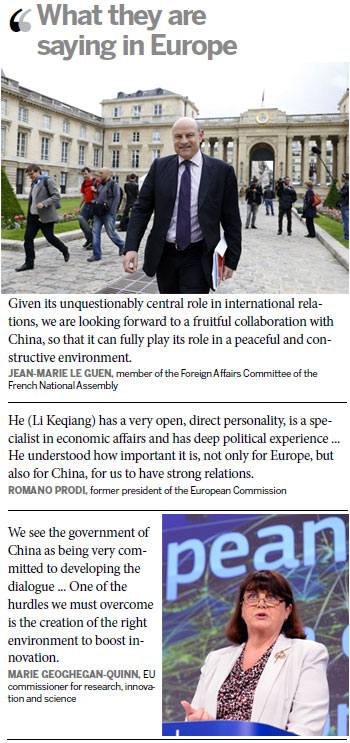"Unlocking Success in Energy Economics with Dr. Peter Odell: Insights and Innovations"
Guide or Summary:Introduction to Dr. Peter OdellDr. Peter Odell's Contributions to Energy EconomicsThe Importance of Sustainable Energy PracticesDr. Odell's……
Guide or Summary:
- Introduction to Dr. Peter Odell
- Dr. Peter Odell's Contributions to Energy Economics
- The Importance of Sustainable Energy Practices
- Dr. Odell's Insights on Global Energy Policies
- Educational Impact and Public Engagement
- Conclusion: The Future of Energy Economics with Dr. Peter Odell
Introduction to Dr. Peter Odell
Dr. Peter Odell is a renowned figure in the field of energy economics, with a career spanning several decades. He has contributed significantly to understanding global energy markets, policy implications, and the economic factors that influence energy consumption and production. His work is particularly relevant in today's context, where energy transition and sustainability are at the forefront of global discussions.
Dr. Peter Odell's Contributions to Energy Economics
Dr. Odell's research encompasses various aspects of energy economics, including the dynamics of oil markets, the role of alternative energy sources, and the implications of geopolitical factors on energy supply and demand. His extensive publications and studies have provided invaluable insights into how energy markets operate and how they can be influenced by external factors such as government policies and international relations.

One of Dr. Odell's key contributions is his analysis of the oil crisis and its impact on global economies. He has examined historical data to understand how sudden shifts in oil prices can lead to economic instability and has proposed frameworks for mitigating such risks. His work emphasizes the importance of diversifying energy sources and investing in renewable energy to create a more resilient energy landscape.
The Importance of Sustainable Energy Practices
In recent years, Dr. Peter Odell has shifted his focus toward sustainable energy practices. He advocates for the adoption of renewable energy technologies and the need for a transition from fossil fuels to cleaner energy sources. Dr. Odell argues that this transition is not only crucial for environmental sustainability but also for economic stability. He highlights the potential for job creation in the renewable energy sector and the long-term economic benefits of investing in sustainable technologies.
Dr. Odell's Insights on Global Energy Policies
Dr. Odell has also been vocal about the need for coherent global energy policies. He believes that international collaboration is essential for addressing the challenges posed by climate change and energy security. His insights into how different countries approach energy policy provide a comprehensive understanding of the complexities involved in creating effective strategies that balance economic growth with environmental responsibilities.
Educational Impact and Public Engagement
Beyond his research, Dr. Peter Odell is committed to educating the next generation of energy economists and policymakers. He frequently engages in public speaking events, workshops, and seminars, sharing his knowledge and encouraging discussions on energy-related topics. His ability to communicate complex ideas in an accessible manner has made him a sought-after speaker in academic and industry circles.
Conclusion: The Future of Energy Economics with Dr. Peter Odell
As the world grapples with the challenges of energy transition and climate change, Dr. Peter Odell's insights and expertise remain more relevant than ever. His work continues to inspire policymakers, researchers, and students alike, emphasizing the need for innovative solutions and collaborative efforts in the field of energy economics. By following Dr. Odell's contributions, we can better understand the intricate relationship between energy, economics, and the environment, paving the way for a sustainable future.
In summary, Dr. Peter Odell's extensive knowledge and research in energy economics provide a crucial framework for understanding the current energy landscape and its future trajectory. His commitment to sustainability and public engagement ensures that his impact will be felt for years to come, guiding the discourse on energy policy and economic stability in an ever-changing world.
